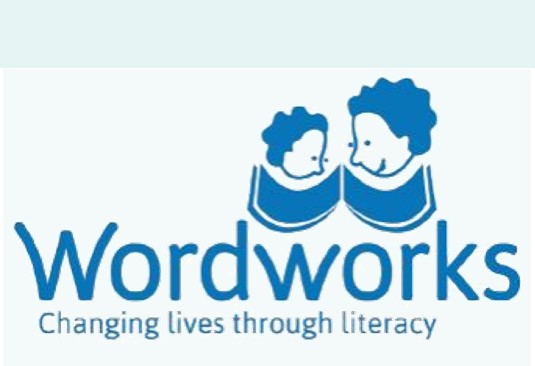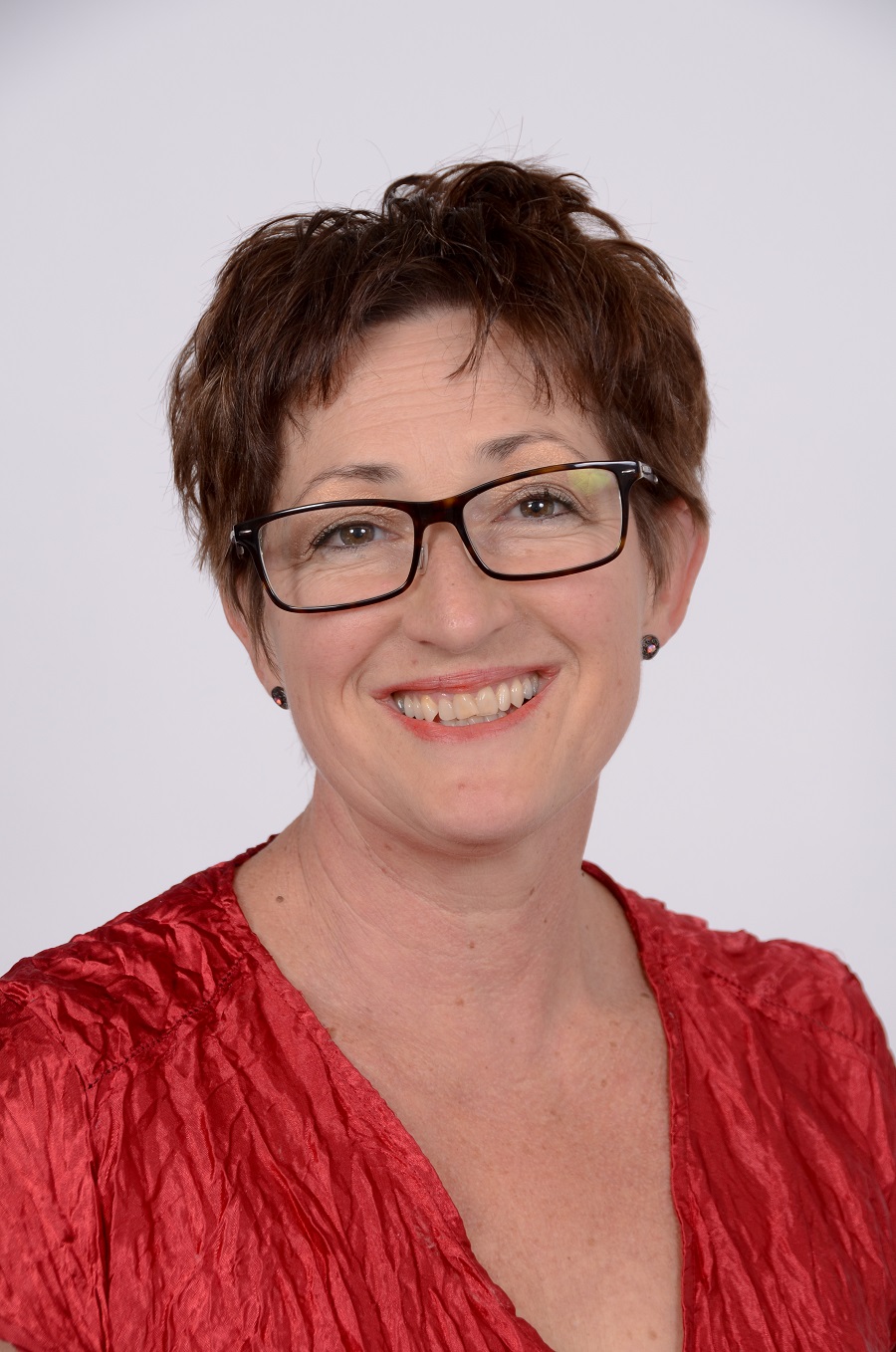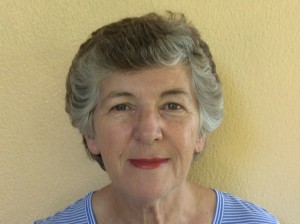Stories from our network
Andiswa Sondezi
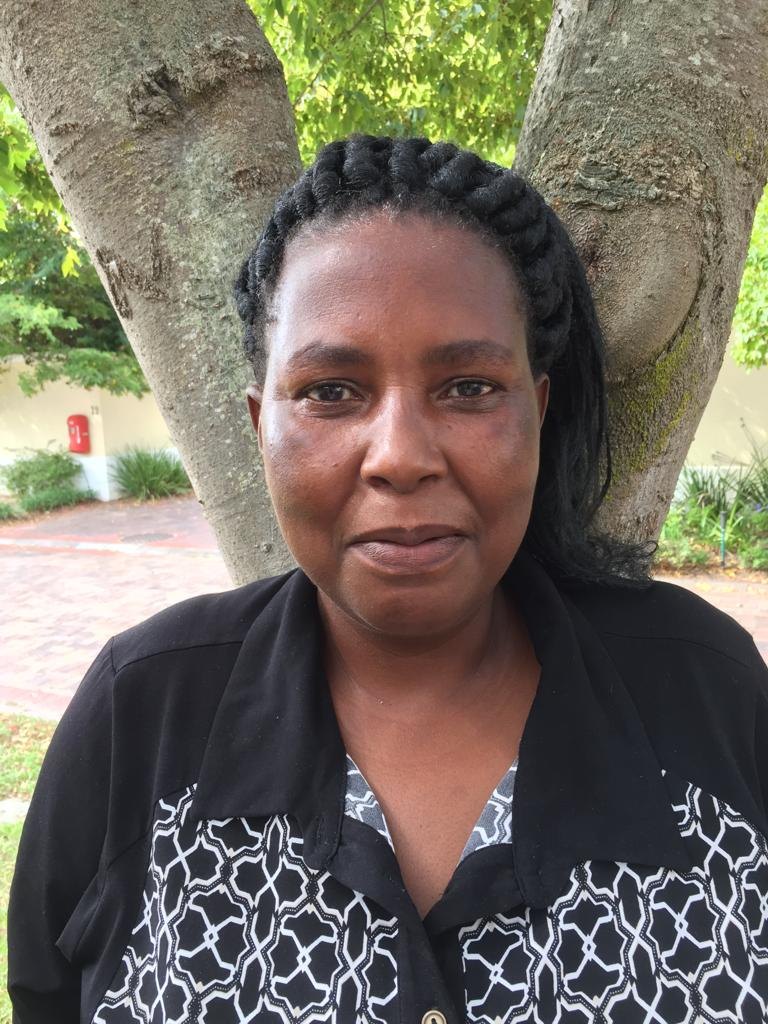
‘I started attending the Wordworks Home-School Partnerships programme sessions in 2017 at Intshayelelo Primary School, where my grandchildren attend. We were invited to the school and told about the new programme for parents to better assist our children informally at home. This was my first experience of any kind of early literacy programme.
I never thought that I could ever be able to assist my grandchild in the learning process. What was exciting for me was that the things we did in our everyday life could be a great opportunity for me to teach. I soon realised there was so much more that I could do as a grandparent to give my children a good start in their education. I was also developing as an adult because I started to be interested in learning more and realising my potential. This got me excited and looking forward to what was next for me.
I think it is very important for the school to work with parents because this could help build a solid foundation in the child’s experience of learning. When I was growing up, the home setting and the school environment were completely separated and we grew up thinking that was normal. When the school opened their doors for us as parents with the HSP programme it bridged a big gap of communication and understanding between teachers and parents. When communication was possible, we then started sharing knowledge with each other in a free space allowing for opportunities of learning for both to convey the same message to our children.
Graduating from HSP programme was my first experience of receiving a certificate.
We were then offered the opportunity to train as co-ordinators for the Wordworks Ready Steady Read Write tutor programme. This gave me the opportunity not to only help my grandchildren but to assist in the school community as a whole.
I have come a long way since my first introduction to the Wordworks programmes. I am now studying at the College of Cape Town Level 4 in ECD which I never thought possible. I am also an assistant for the Grade R teachers on the days when I’m not doing RSRW. This has been life changing as I was a domestic worker and never realized my dream. I am living my full potential in my later years, and in the process helping my children and my community.’
Lynette du Preez
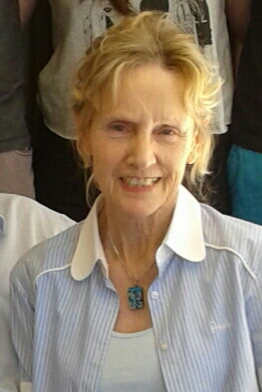 Lynette du Preez has recently signed off from the Ready Steady Read Write Programme after eight years. She became involved with the programme after she retired as a high school teacher. While most people would be easing into their well-deserved break, Lynette decided she wanted to be involved with helping children to read and write.
Lynette du Preez has recently signed off from the Ready Steady Read Write Programme after eight years. She became involved with the programme after she retired as a high school teacher. While most people would be easing into their well-deserved break, Lynette decided she wanted to be involved with helping children to read and write.
“After attending training, I started with the Ready Steady programme at St Andrews Primary in Saldanha Bay. As the material was mostly in English, I translated some of it into Afrikaans. Initially I tutored four Grade 1 children in a small storeroom. The next year, four parents from the community joined my team. In 2013, I moved to Cape Town and started the programme at Simon van der Stel Primary in Wynberg. Two happy years followed with a team of six diligent tutors. On my return to Veldrif, I started the Ready Steady programme at Noordhoek Primary with six volunteers. After my husband’s health deteriorated, I was obliged to leave the project.
A highlight for me as a tutor was when I explained to a child how letters form a word. I saw his eyes light up, and he said: “Oh, is that how it works!”
These eight years enriched my life tremendously. I met and worked with friendly people and saw that I could make a difference in a child’s life. My wish to continue until my eightieth birthday, was not fulfilled, but I cherish the lovely memories.
Thank you, Wordworks!”
Eunice Tokota
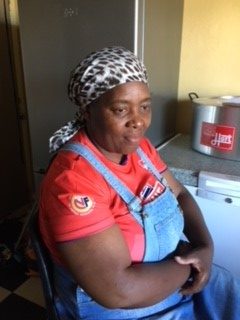 Eunice Tokota is an ECD practitioner, but she is also an ECD champion, dedicated to helping families in rural Eastern Cape. She walks long distances to visit homes, sharing early literacy messages from our Every Word Counts (EWC) Programme.
Eunice Tokota is an ECD practitioner, but she is also an ECD champion, dedicated to helping families in rural Eastern Cape. She walks long distances to visit homes, sharing early literacy messages from our Every Word Counts (EWC) Programme.
Before Eunice was introduced to EWC at the aftercare where she works, she did not know that we can support very young children to talk. Now that they are using EWC, she says the children are speaking well. They are learning to use the correct names for things – even while playing games.
Once Eunice had experienced EWC, she spoke at a community meeting about ways to reach children. Small groups began to run EWC workshops. One group asked her to run a refresher course so they could get certificates. Eunice says she is keen to run the EWC refresher course because: ’Before they can train people in the community, I need to know that they are sure of what they are doing.’
An EWC participant working at Peddie agricultural development gave Eunice some seedlings. She passed these on to parents, for making small gardens at their homes. Her message is simple: ‘Whatever you do, you can work with your child. When you dig a hole, tell the child that this is imbewu (seeds); this is izityalo (plants) and intswele (onion). Tell your child it’s going to be a big onion one day! And fathers, when you work with your cattle, tell your child that the milk in the cupboard is from the cow. One day we’ll realise our knowledge is good; it won’t be lost; we will use it in the future.’
Eunice says that as she visits families, she has to change her approach for each home. She shows interest in what they are doing. If a mother is sewing, she encourages her to make time for her children, such as giving them pieces of material to do pretend sewing. When parents say that ECD centres are too far away or too expensive, she tells them that they can start the programme at home, playing games with homemade toys.
Eunice says: ‘Every Word Counts is not about today; it’s about the future. When I say that to parents, I see the change in their faces … EWC is going to change everything in the family, but the parents must be part of that. It’s not about the teachers at school – the teachers are already doing their jobs. It’s the parents’ role that is the most important.’
Thank you to Kathryn Torres for sharing notes from her interview with Eunice.
Cherise Sickle
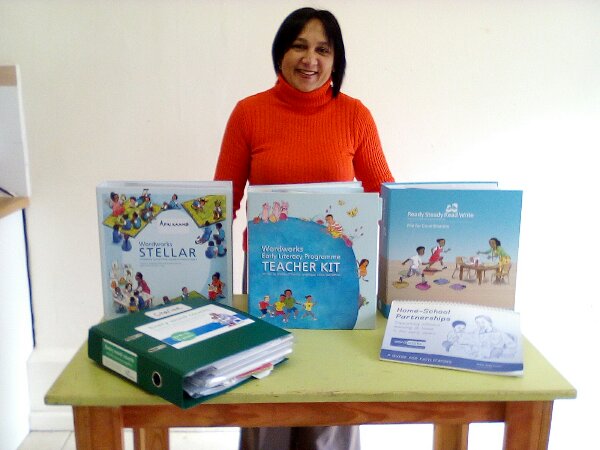
I am a Foundation Phase teacher. I was teaching at George Dickerson primary school in 2010 in Grahamstown, when I met Cathy Gush. She introduced me to Wordworks (Ready, Steady Read Write and Home-School Partnerships programmes). I was hooked! The Wordworks’ programmes are informative, interesting and their resources are of a high standard and quality. I always strive to give the best possible education for the learners in my class and I loved incorporating the Wordworks Early Literacy Programme TEACHER KIT into the curriculum. Learners saw it as a real treat when they played the games or used the sequencing story cards!
Their excitement was tangible in the air when we worked with our Wordworks resources and their programmes cater for the visual, auditory and kinaesthetic learners. I even instilled a love for reading in my son by using Wordworks programmes and by reinforcing the sounds or words by playing the educational games or picture cards and post box game. And by presenting the Home-School Partnerships programme to parents, I became a better, more relaxed, more confident and more informative mom.
Fast forward to 2015 and I started working at the Lebone Centre as an Early Childhood Development Co-ordinator and I attended the Every word counts training in Cape Town. I couldn’t wait to start working and sharing the knowledge with the parents. In November 2016 I attended the STELLAR Programme training. I was enlightened and so enthusiastic! I am very passionate about education and I have a ‘hungry brain for learning”!
In August 2017, I received training on the Ready Steady Read Write programme. I could not contain my enthusiasm and excitement when I realized that I received training and have worked with ALL the Wordworks programmes!
I believe all the teachers in South Africa should receive Wordworks training! I cherish all my Wordworks files and I am still enthusiastic and eager to work with, and share the knowledge and experience accumulated over 7 years!
Sukayna Salie
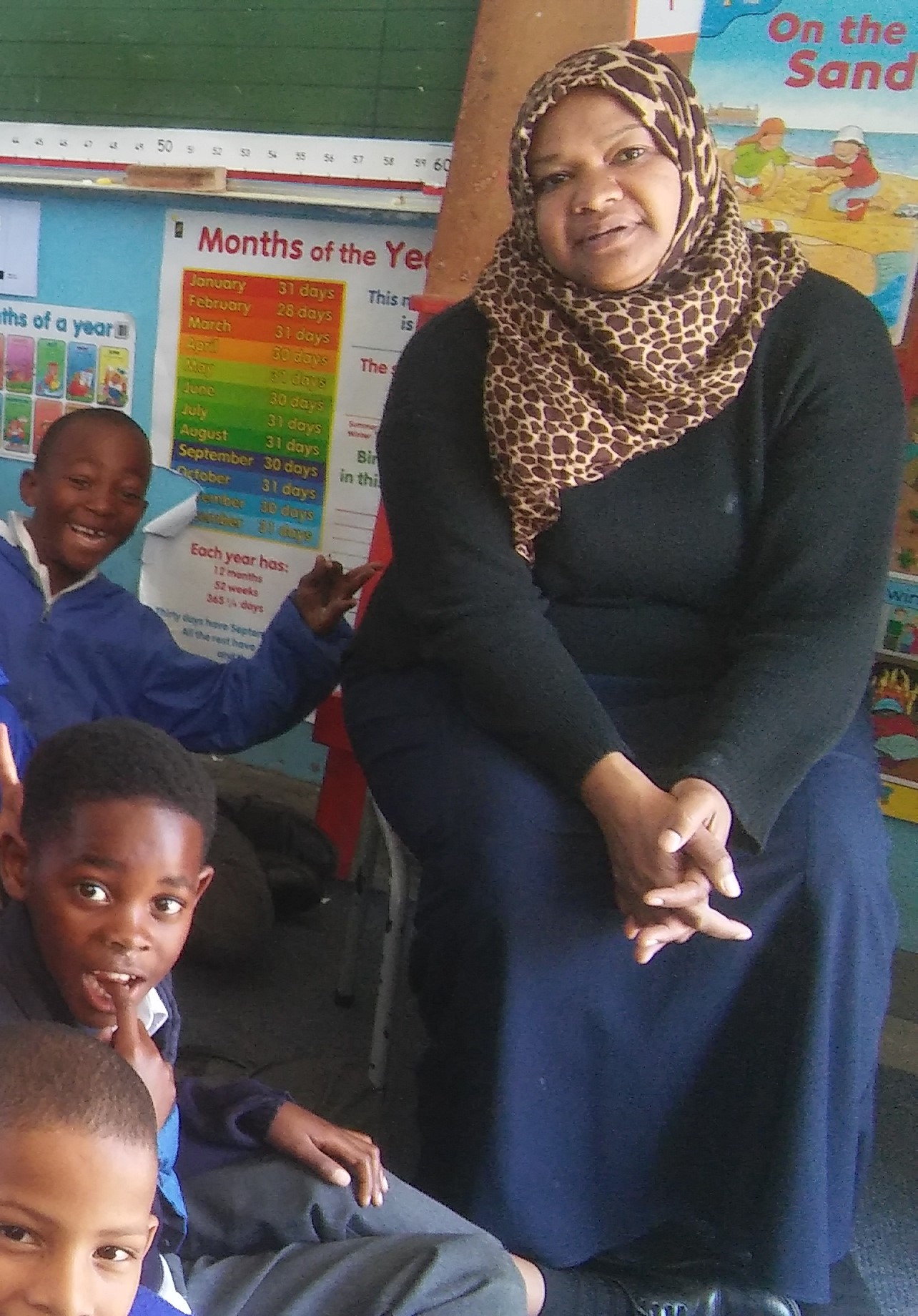
My introduction to the Ready Steady programme was in 2009. I was honoured to be asked by the teachers at Cornflower Primary to assist with the parent programme. I then volunteered for the Ready Steady co-ordinator training where I felt my head was going to burst with all the information! I had so many ideas of what I wanted to do, how I wanted my setup to be at the school. Wordworks uses amazing techniques and I like the way they treat the volunteers. I also received excellent guidance from my mentor, Sue, who was always there to offer support.
In the first year of doing the Ready Steady Read Write programme, a Wordworks learner got the MOST IMPROVED award which was amazing! I used the Wordworks Game Pack with my daughter when she was 4 years old. She is currently in Grade 1 and her teacher says “she is brilliant, and her reading is excellent”. I advertised tutoring services and volunteered at the Muslim school where I used the Ready Steady programme as well. Teachers invited me to speak about Wordworks at parent meetings.
Doing the Wordworks programme inspired me to do a B ED degree through UNISA. I have almost completed my degree now and even got some distinctions under my belt. In January, the principal of Spineview Primary granted me the opportunity to be a Grade One teacher. He was so impressed when he heard that I was Wordworks trained. I felt so blessed. Up till today my job is my passion and I’m excited every morning to teach something new.
Being trained by Wordworks really laid a solid foundation for me to work with young children. I have more patience and am able to bring the lesson to the child’s level so they understand better. I use Wordworks methods daily in my class. Now for birthday gifts I give story books and I promote the game packs at every chance I get.
Wordworks has given even me a confidence boost. I stand in front of class every day strong and confident. People are asking me for advice now!
Nosipho Gumede: ECD Technical Support Officer
Nosipho Gumede has been the Early Childhood Development Technical Support Officer at Network Action Group (NAG) in KwaZulu-Natal since 2014. Her work involves enhancing the skills of practitioners, improving programming, and providing monitoring and support to all sites in the Ugu Municipality District.
I joined the Early Childhood Development (ECD) sector because there was a need for an ECD facility in our rural community of Mehlomnyama. My husband and I started an ECD facility in the community, so that our small children could develop more social skills with their peers and at the same time we accommodated additional children to bridge the gap that existed at that time. This initiative exposed me to greater opportunities. I attended the NAG ECD Network meetings and ECD training, where I gained greater understanding of ECD whilst developing the confidence to share parenting experiences with other ECD practitioners.
My first Every Word Counts (EWC) training in September 2016 was enlightening. I felt encouraged and motivated to go back and share what I had learned. NAG had already started ECD Learning Groups, but we were struggling to retain participants and keep them motivated. Immediately after the training, we started to plan how we were going to use the EWC material with these groups. ECD practitioners responded very positively and valued the new ideas for activities and resources. We have seen improvements in attendance at the Learning Groups as well as in parenting and teaching. Practitioners now have a better understanding of how to conduct parent meetings. Instead of waiting for parents to show up at set times, they now approach parents informally. The Wordworks EWC team also provides on-going support and updates, making it interesting and inspiring to work alongside them.
EWC training has contributed immensely to our personal growth as a family. I have even downloaded the CareUp App (https://www.wordworks.org.za/category/resources/) which we view in our home language – isiZulu. My husband is also very motivated and plays the guessing game and reads stories with our children. I have realised that engaging children in everyday activities helps boost their self-confidence and improves their vocabulary drastically. I am so confident now about my children’s language development.
Rotary Club of Wynberg’s Library Corners Project at Montagu’s Gift
In June, Ready Steady Read Write (RSRW) tutors assisted the Rotary Club of Wynberg to select books and set up the fully stocked Library Corners that Rotary has sponsored for each foundation phase classroom, at Montagu’s Gift Primary School. (See ‘Locals donate libraries to dream of’: People’s Post 27 June 2016)
Wordworks is proud to be associated with partners that are growing early language and literacy resources and opportunities for children.
STELLAR is in Humansdorp in the Eastern Cape!
#WordNetworks member #ITEC is now working with #STELLAR in Humansdorp!
Twenty-five Grade R teachers, who form part of the Jeffreys Bay Wind Farm’s Literacy Programmes, are set to benefit from an early language and literacy programme. The programme, which is fully compliant with CAPS, kicked off on Tuesday 16 May, at St Patrick’s School in Humansdorp.
Explaining the motivation behind this education programme, Marion Green-Thompson, Economic Development Director of Jeffreys Bay Wind Farm said, “Evidence clearly shows how important oral language and literacy foundations are for all school learning. Children who have more developed language and literacy capabilities when they start Grade 1 go on to become betters readers and writers. STELLAR provides theoretical and practical ideas to help Grade R teachers work with young children to build crucial skills in a fun, story-based, activity-rich programme,”
The STELLAR Programme, which stands for ‘strengthening teaching of early language and literacy in Grade R’ is designed to support Grade R teachers to develop the knowledge and skills they need to teach oral language and emergent literacy effectively.
Xolisa Guzula: Researcher and educator in multilingual education
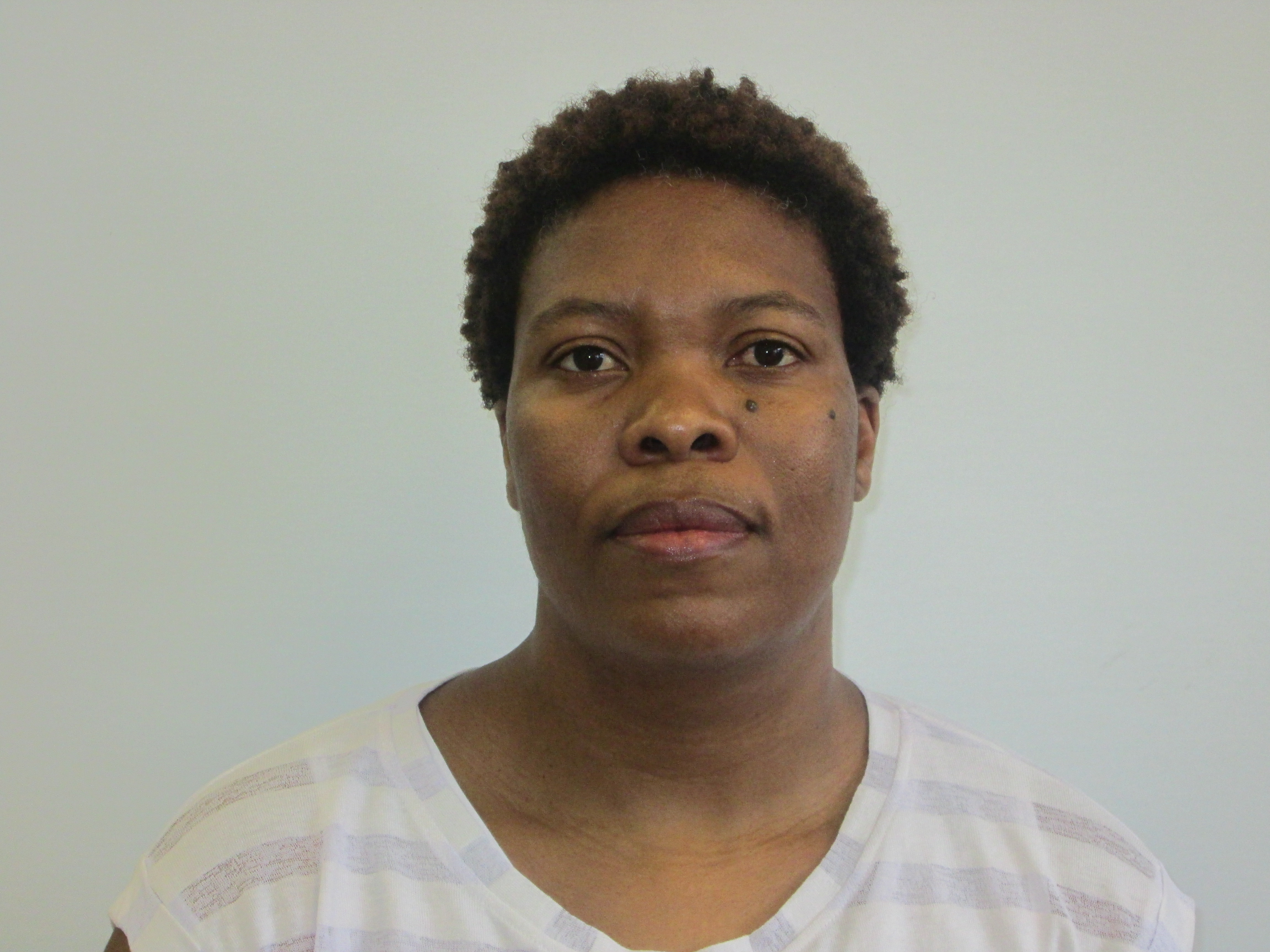
Xolisa Guzula is a doctoral student who currently teaches Postgraduate Certificate in Education Foundation Phase (PGCE) students. She is a passionate proponent of multi-lingual education.
Xolisa has had wide language and literacy teaching experience at schools and universities. She has also trained trainers and worked with parents in the NGO sector. Her expertise as a board member and consultant has been valued at various early literacy NGOs, including Wordworks.
In this article she talks about how she became interested in the area of multi-lingual teaching and learning, her approach to early language development in a multi-lingual society, and her wide-ranging contribution to this field. She also discusses her work in translating Wordworks materials into Xhosa.
Words Work – Making literacy a priority in South African schools
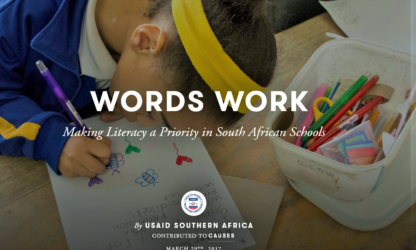
“With programs like Wordworks making their way into the schools, homes, and the minds of children, it is only a matter of time before emergent literacy holds a prominent place in the early years of education for all South African children.”
This article from USAID, a major funder of the WCED Grade R Emergent Literacy rollout incorporating the Grade R Stellar programme, provides some background to the issues around early literacy in SA and looks at some of the features and accomplishments of the programme.
Wordworks is proud to be associated with Patricia Williams (featured in the article) and all the other Grade R teachers who are doing such amazing work in their classrooms!
Read the article here: https://usaidsouthernafrica.exposure.co/words-work
Erina Muir: Grade R Teacher and STELLAR Lead Teacher
An interview with Erina about her experience with the Wordworks STELLAR programme.
*How long have you been a Grade R teacher?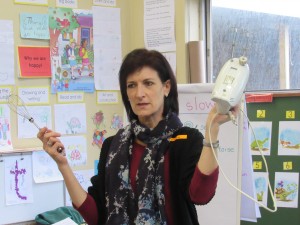
10 years
And how long at Oakhurst?
I introduced the first Grade R class at Oakhurst 5 years ago.
*What is it about teaching this age group that inspires and excites you?
I get to mould some part of their personalities while they are young and ‘mouldable’. They are absolute ‘sponges’, but it’s not just about the cognitive – it’s about looking at the whole child – and it’s so exciting to see their social interaction develop as well.
*How have your girls responded to the STELLAR stories and activities?
They have absolutely loved them! They get very excited about the role play. They use the vocab we have discussed. It’s the richness of the programme. They can take the stories and apply them to their real life. They have also enjoyed writing their own stories, and now I have a bigger group of girls than ever before who are willing to have a go at writing!
*What do you feel STELLAR has brought to your Grade R classroom?
It has brought a structure which is used as the basis for my home language slot. It makes it easy to work it into our daily programme. The Letter & Sound games and all the extra things are enjoyed, even during free play time.
*Have you had any comments from any parents or any colleagues about the STELLAR component of your Grade R curriculum?
Yes! Parents say the girls are excited about reading their stories to their parents (though they didn’t think they would be). Erina has noticed that a bigger group than previously (about 20 out of the 24 in her class) are keen to have a go at reading.They read their little books and other books too! Parents can’t believe that they are sounding out the words.
*What was your feeling/response when you were asked to be a Lead Teacher for the ELIT project?
When we were informed, we didn’t really understand what we were being asked to do, or what the programme was all about. Two weeks on one story seemed too long and I thought the girls might get bored. However as I have worked in the STELLAR programme, I realise that there is so much you can do by way of extension to suit your group.
*And how did it play out? As you expected it would?
I discovered that because you deal with the story for two weeks, the extensions are deep and you can deal with them. The children initiate the extensions – and I allow them to lead me. It takes them to a point of self-initiated learning! There were discussions about the different kinds of buck, and the various members of the cat family.
*Can you share one or two highlights? Feel free to include challenges as well.
The role play was particularly successful. The girls found their voices, even if they were quiet. Because they knew what the characters said, they felt confident.
There was a lot of discussion and reasoning, for example they had to decide when Frog (a STELLAR story character) should go into Bushbuck’s house.
Then also the repetition and consolidation of sounds that led to the girls being more confident. They started sooner in the year (than previously) to have a go at writing.
*Personal growth on this journey?
I have grown as a teacher. This programme has helped me to see how far you can extend the children… and then they go even further! I loved being a lead teacher.
Engaging with other teachers has been wonderful. When teachers are supported and encouraged, they will move from strength to strength. I am a stronger person, more grateful for what I have, and more hopeful for education in this country. Having teachers helping teachers is the way of the future – not only for Grade R, but for education in general.
Regarding my interacting with the teachers: it made so much sense to discuss things, and then you know that those teachers are experiencing what you are talking about. You feel like they understand! We had spoken about the CAPS but it was only when we sat with the old and the new CAPS documents on the tables that the lights went on.
I felt so energised after the Block training – seeing the dedication, the positivity, and the willingness to put it into practice. It was mind-blowing for me, and so very encouraging to see the calibre of the teachers.
As much as I have been able to give, I feel like I have just received so much more!
Stories from our network
Babette le Roux: Teacher and researcher
My name is Babette le Roux. As a teacher and a researcher I was troubled by the poor performance of South African learners in national and international literacy assessments. Knowing that early intervention is key, I directed my attention to ways of supporting informal learning opportunities at home.
That interest led to a doctoral study with the theme: The role of family literacy to support emergent literacy in young learners. The aim of the study was to investigate how family literacy programmes can assist to bridge the literacy gap between informal learning at home and formal learning in school so that young learners can come to school better prepared.
I implemented the Wordworks Home-School Partnership Programme and the outcomes confirmed a greater sense of community, improved confidence in parenting for literacy development, improvement in quality of parent-child interaction and a raised awareness of literacy learning opportunities at home. Implementation of the programme also strengthened the relationship of trust between parents and teachers and created a new level of confidence to approach the school whenever parents need to seek clarity on curriculum issues. The teacher-facilitators also reported less tension and stress around children’s reading in the classroom; that the children who had participated in the programme have much more confidence in the classroom and feel less intimidated by reading and learning.
Family Literacy Programmes have much to offer if we are serious about improved literacy outcomes.
Sheilagh Bill: Ready, steady… read and write co-ordinator
Here is another remarkable story by a member of the Wordworks network – this time from KZN. We are inspired by women like Sheilagh who, in their later years, believe they can make a difference and take the initiative to start a project.
Firstly many thanks to Wordworks for your inspiring programme and support. Without that I would never have got started on this venture. My name is Sheilagh Bill and I am the Co-ordinator of a “Ready, Steady, Read and Write” programme in KwaDabeka, Pinetown. I feel strongly that education is the key to uplifting our country and that reading skills are crucial. Now that I am retired I have time to give back and wanted to give children a helping hand. My background is in software development, so I have no teaching experience, but I do have a passion for reading. I wanted to join a project and heard about Wordworks from my daughter in Cape Town. It seemed just the right structured programme with all the resources provided to get started.
My friend Elaine, who is a teacher, agreed to join me and we approached our church for support. After the Wordworks training which was so interesting and helpful we started last year with 3 volunteers and have grown to 7 this year. We travel to the school where the principal welcomes us and we are building good relationships with the teachers. Fortunately our church, Westville Methodist, has a long association with the school and there is a group helping Grade R with some art and stories. All our volunteers are from our church and we have one Zulu lady who is a great asset as our biggest challenge is that most of us don’t speak isiZulu which is the home language of pupils and teachers.
We have chosen to focus our programme on First Additional Language (English). We work with Grade 2’s who have very little English although by Grade 4 the children are supposed to be taught in English. We work on vocabulary to try and teach sounds and letters. The children are very shy to start but soon warm up and love coming to the sessions. It is hard to leave children out, but we can only take 28 out of 96 children in two Grade 2 classes.
Our volunteers are so dedicated and all love the programme and we have become a close knit team. We also started a school library last year and have collected about 600 books. It is still a work in progress and getting it to be used optimally is something I will be working on this year.
Amanda Sickle: Literacy NPO manager

“I am Amanda Sickle, and I am an avid reader. Amongst other things, I believe in legacy and random acts of kindness.
I work full-time at a research organisation. In my ‘other time’ I manage an NPO, called The Reading Room, which I founded in 2012. Reading for enjoyment is in my nature, so I was horrified to learn that among Grade Three children, the national average performance in literacy was 35%; and in numeracy, 28% (Department of Education, 2012)
I started my ‘reading-assistance’ journey as a volunteer for Help2Read. The movie ‘The Reading Room’ inspired me to start reading assistance free-of-charge from my home, which soon became too small. We now lease retail space in Ottery – I pay for this from my salary. Ten volunteers, known as ‘reading buddies’, assist between 45-50 learners in Grades 1-12 every Saturday morning.
I stumbled upon Wordworks perchance while searching online for resources. I must confess I am hooked on their materials! They’re so easy to implement that I use them all the time. Wordworks also trained me to facilitate workshops to empower parents to support their children’s learning.
I see the difference all this makes to a child’s self-awareness and development and, of course, the school report is all the evidence I need to know that I must be doing something right! Often we need to step out of our comfort zones and just do it!!”
Carmen Petersen
Carmen Petersen is a Grade One educator at Eastville Primary in Mitchell’s Plain, and a wife and mother of two teenage children.
“I got involved in the Home School Partnership Programme because I realised that the parents at our school are eager to help their children but are not equipped. I believed that assisting and empowering them would bridge the gap between home and school, and that our literacy levels could only improve.
We received a very positive response from our parents. Some even took leave every Thursday just to be present every week. The big ‘aha moment’ came when parents realised that they weren’t expected to be like their child’s teacher at home. They were to put the fun back into being a parent – not a stressed out parent who shouted and punished the child. They started seeing all the teaching and learning opportunities that came up on a daily basis and could confidently reinforce what the child had already learnt at school.
I absolutely LOVED facilitating the Wordworks programme. There wasn’t a week that I sighed! I became much more relaxed with the parents and we formed a WhatsApp group. And now that it is all over, we have a support group meeting twice a month, just to stay connected.”
Gail Lindsay: Ready, Steady, Read, Write co-ordinator
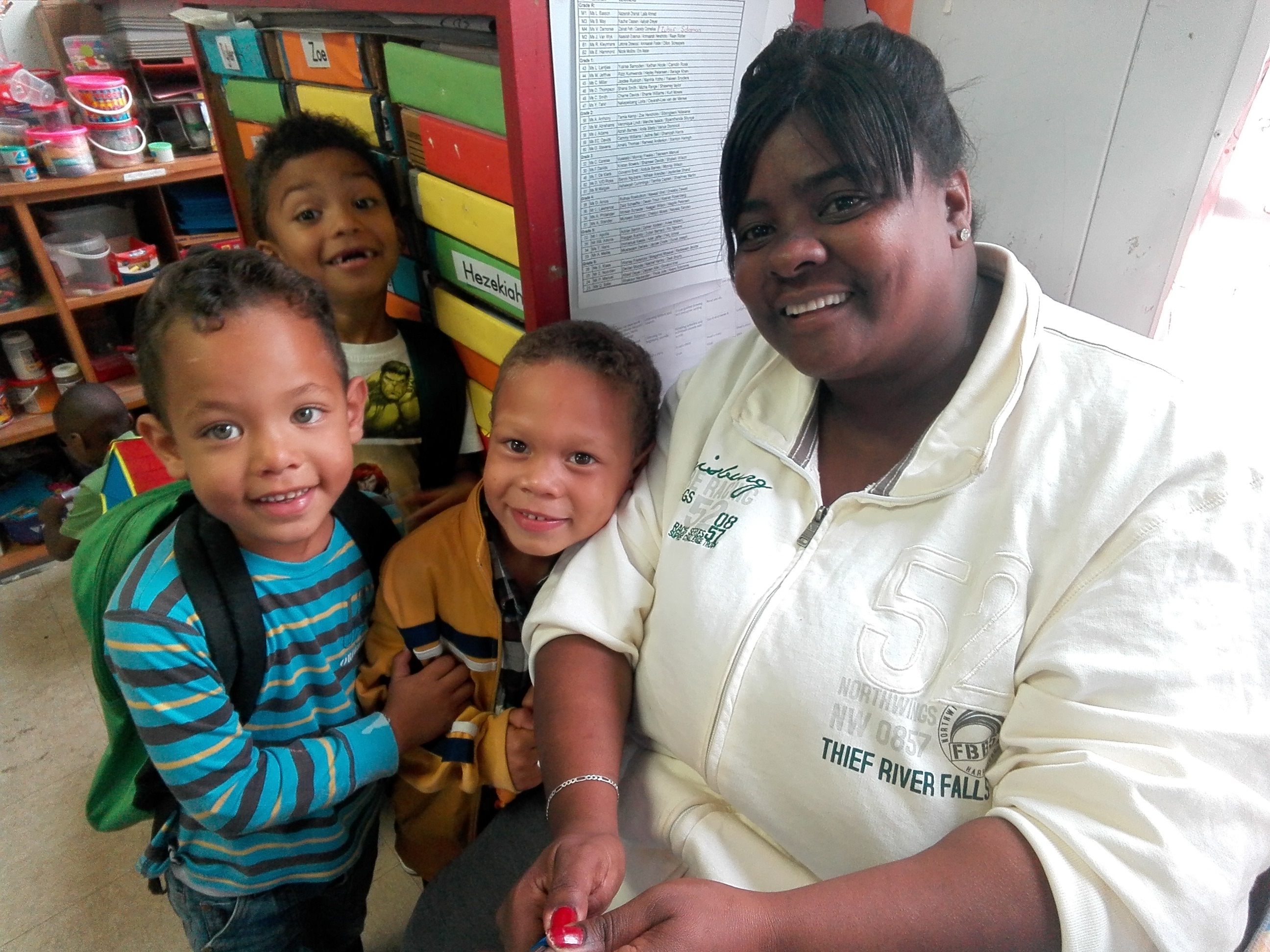
Gail Lindsay is the Coordinator of the flourishing Ready, steady…read and write Programme at West End Primary School. In 2016, she will also assist Spineview Primary to set up their programme.
“I’ve been working in the community, since the age of 13, in sport, youth groups and as a counsellor. I was introduced to the lovely Wordworks parent programme when I was running an aftercare from home and then I attended training for the Ready, steady … read and write Programme. After the first day of training, I knew I wanted to continue.
When I started as Co-ordinator at West End we had very little space. Volunteers did not have chairs, and were kneeling on the floor during sessions. Now, because of the results we are achieving with learners, the Principals Association is building us a Wordworks classroom!
I don’t want my 22 Volunteers to scatter, so we support each other. After the Volunteers arrive for their classes, they use the hand sanitiser, we pray, talk to each other, and only then we fetch the kids. The day does not end on the school grounds, we like to stay connected on the group chat every day. We meet monthly to discuss issues that Volunteers write in their diaries. This makes us aware of changes in our kids so we can tell their teachers. Recently we all went together to join the library. It is a whole new environment!
I don’t work for any boss, I’m a volunteer…and how I enjoy it, because I am doing something positive with my life! What keeps me here is the passion I have to work with children and my love for the community.”
Nolake Mantongomane: Home school partnership graduate
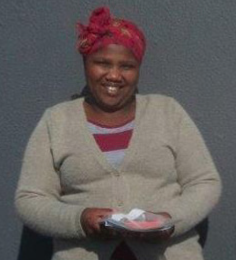 Mrs Mantongomane lives in Capricorn. The family’s home language is isiXhosa. Not only has Thando mastered English as his language of teaching and learning, but he is now also part of the enrichment class for children who are top achievers. This is an inspiring example of what can be achieved when parents get involved in their children’s learning at home!
Mrs Mantongomane lives in Capricorn. The family’s home language is isiXhosa. Not only has Thando mastered English as his language of teaching and learning, but he is now also part of the enrichment class for children who are top achievers. This is an inspiring example of what can be achieved when parents get involved in their children’s learning at home!
“I am Nolake Mantongomane. My boy, Thando, is in grade 5 at Capricorn Primary. He was 3 years when I was attending the course (for parents). Thando was at Sunrise crèche.
Before the HSP programme I didn’t pay attention. When he came from school, I didn’t support him. After doing the programme I became more helpful, I learn – I must be more supportive of my child’s education. And I still support him. Thando’s father also changed – same as me, before that he did nothing. He is still involved with Thando. He goes to karate with him and goes to the library. Before bed Thando reads with his father.”
When asked what were the most important things she learnt on the course, Mrs Mantongomane smiled broadly and said: “ninzi …. ninzi” (a lot).
Ada Brown – Grade R educator
My name is Ada Brown and I am a Grade R educator at Littlewood Primary School in Mitchells Plain. Growing up was not easy for me as I lost both my parents at a tender age of twelve. My sisters and I was then sent to a children’s home. It was here where my passion to work with children started and I am still assisting children in the community.
Being a teacher in a disadvantaged area comes with its challenges. Here the learners are exposed to poverty, violence, gangsterism, drug and alcohol abuse.
When I heard about Wordworks I thought that it was going to be the same as all the other literacy and language workshops. After the first workshop I saw that there was something different. I left the workshop very excited. I immediately read Ali and the paint and prepared the activities for the week. By the third day I could see a change in my learners. The shy learners were participating and the busy learners settled down because they could not wait for their turn to tell the story, using the puppets.
Wordworks is a very positive way of teaching early language and emergent writing skills. For me personally it really works and it is designed in such a way that it caters for all the different ways in which children learn. My learners have become strong emergent writers and their vocabulary has increased tremendously. They have also become very confident in telling stories and role playing them.
When Angelique asked if she could come and film my learners and I, I said “yes” because I knew that with the filming, many teachers, parents, community members and volunteers would be encouraged and empowered. This has been an exciting and rewarding journey for me as well as for the learners.
